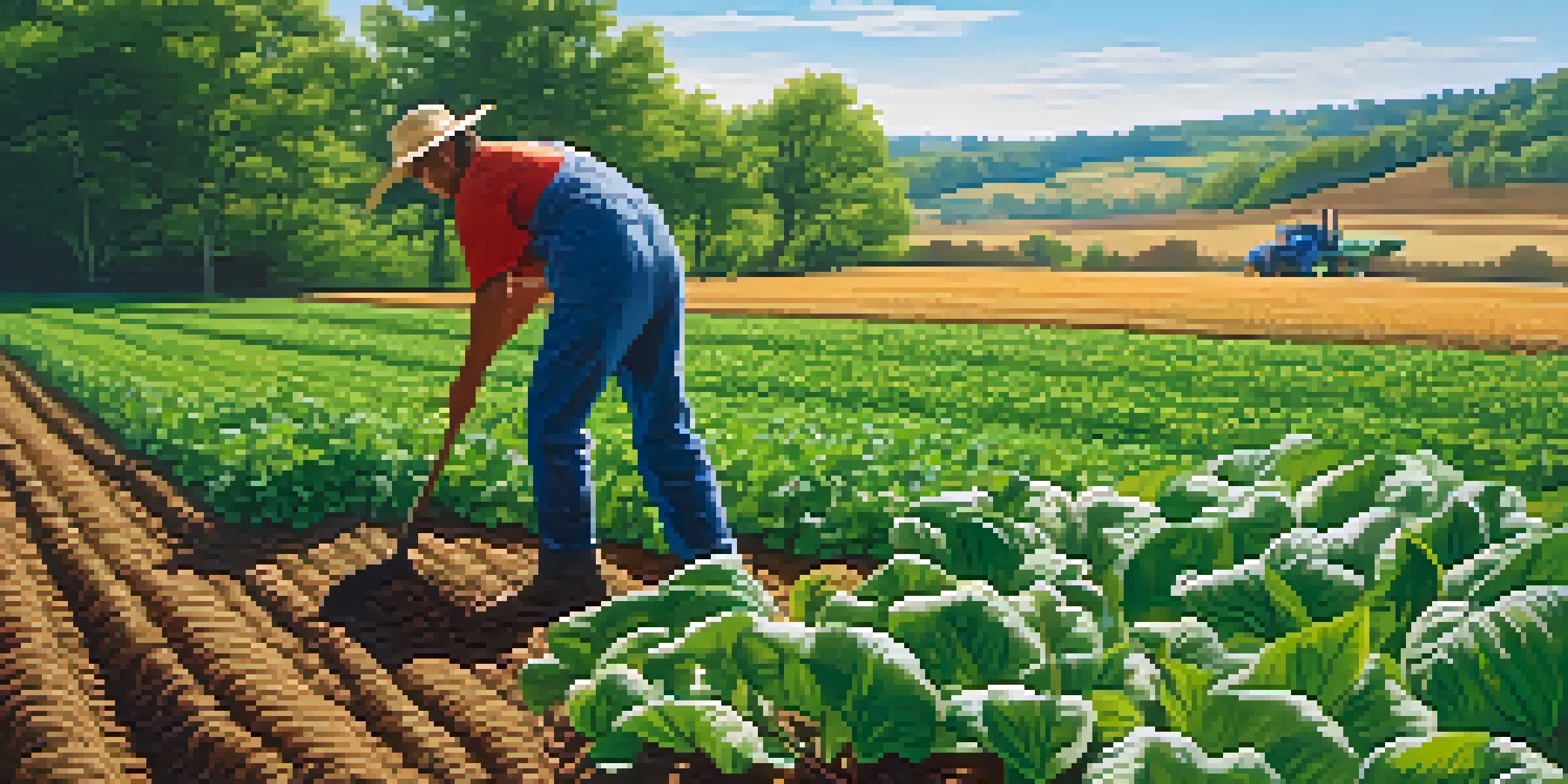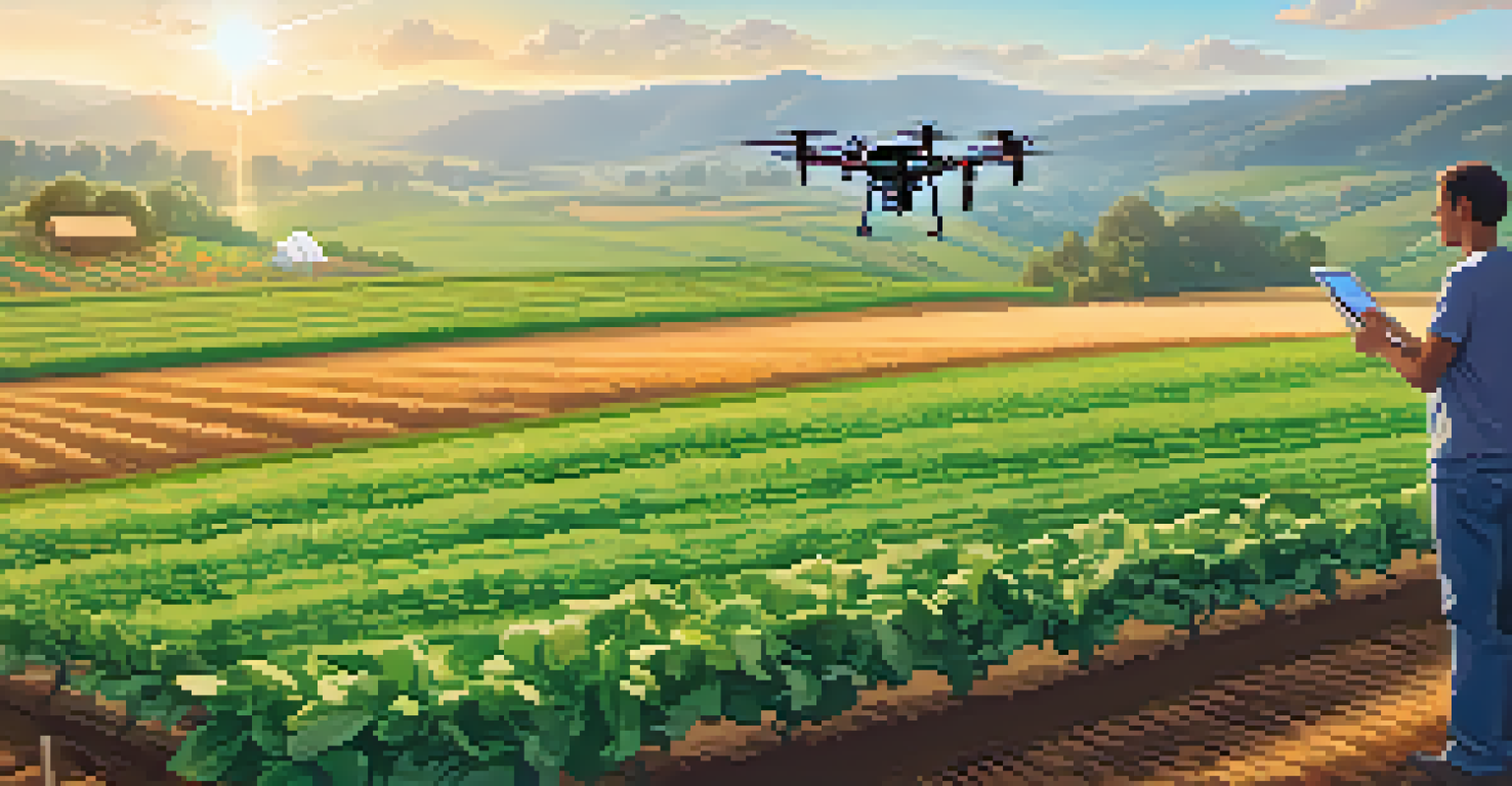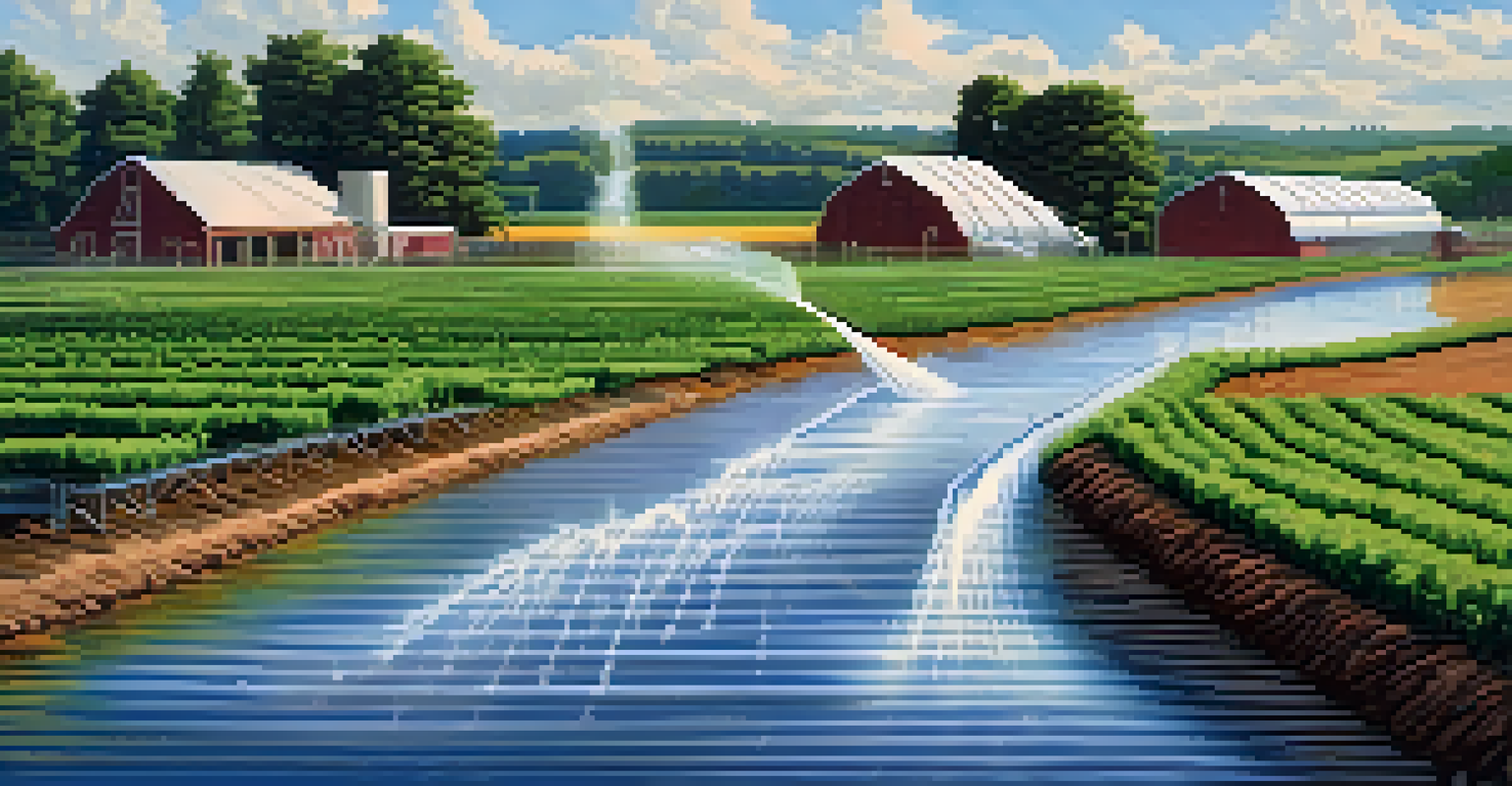Food Safety Innovations in Plant Cultivation Practices

Understanding Food Safety in Plant Cultivation
Food safety in plant cultivation encompasses practices aimed at preventing contamination and ensuring crops are safe for consumption. This means taking measures from the moment seeds are sown until the produce reaches consumers. Understanding the importance of food safety is crucial, especially as the demand for fresh produce continues to rise globally.
Food safety is a shared responsibility, and it begins with what we grow and how we grow it.
One common concern is the potential for pathogens, pesticides, and other harmful substances to affect crop quality. By implementing stringent food safety protocols, farmers can significantly reduce these risks. This proactive approach not only protects consumers but also enhances the reputation of growers in the marketplace.
Innovations in food safety practices are continually evolving, driven by advancements in technology and research. As we delve into these innovations, we’ll see how they are reshaping the landscape of plant cultivation and ensuring a safer food supply.
Soil Health and Its Role in Food Safety
Soil health is a foundational element in ensuring food safety. Healthy soil supports robust plant growth, which in turn can naturally resist pests and diseases. By focusing on soil quality, farmers can reduce the reliance on chemical inputs, leading to safer produce.

Techniques such as crop rotation, cover cropping, and organic amendments help improve soil health. These practices not only boost nutrient availability but also enhance microbial diversity, which is crucial for a balanced ecosystem. When soil is nurtured, plants thrive, resulting in higher quality and safer food.
Soil Health Ensures Safer Produce
Healthy soil fosters robust plant growth, reducing the reliance on chemicals and enhancing food safety.
Moreover, the connection between soil health and food safety illustrates the importance of holistic farming practices. As we work towards sustainable agriculture, prioritizing soil health is a key step in ensuring the safety of the food we consume.
Technological Innovations in Pest Control
The integration of technology in pest control has revolutionized food safety in plant cultivation. Innovations such as precision agriculture and integrated pest management (IPM) allow for targeted interventions that minimize pesticide use. This not only ensures the safety of the produce but also protects beneficial insects and the surrounding ecosystem.
Sustainable agriculture is not a choice; it is a necessity for food safety and environmental health.
For instance, using drones equipped with sensors can help farmers monitor crop health and identify pest outbreaks early. This timely response can significantly reduce the need for chemical treatments, leading to safer food products. Additionally, advancements in biopesticides offer natural alternatives to traditional chemicals, further enhancing food safety.
These technological solutions not only promote food safety but also improve overall crop yields. As farmers embrace these innovations, the focus shifts towards sustainable practices that benefit both consumers and the environment.
Water Quality Management in Agriculture
Water quality is a crucial aspect of food safety in plant cultivation. Contaminated water can introduce pathogens and harmful substances into crops, posing risks to consumers. Thus, managing water quality is imperative for safe agricultural practices.
Farmers are increasingly adopting water testing protocols to ensure that irrigation sources are free from contaminants. Techniques such as rainwater harvesting and drip irrigation not only conserve water but also reduce the risk of introducing pollutants to the plants. By prioritizing clean water, farmers can safeguard their crops and, ultimately, the consumers who rely on them.
Tech Innovations Enhance Food Safety
Technological advancements in pest control and water management are crucial for maintaining high food safety standards.
Additionally, advancements in water purification technologies are making it easier for growers to maintain high water quality standards. Investing in these systems not only protects produce but also fosters trust among consumers, reinforcing the importance of food safety.
The Rise of Organic Farming Practices
Organic farming practices have gained significant traction in recent years, emphasizing food safety and sustainability. By avoiding synthetic fertilizers and pesticides, organic farmers minimize the risk of chemical residues on produce. This commitment to natural methods fosters a safer food supply for consumers.
Moreover, organic farming promotes biodiversity and healthier ecosystems, which contribute to food safety. For instance, diverse cropping systems can help deter pests naturally, reducing the need for chemical interventions. As consumers increasingly seek organic options, the demand for safer, chemical-free produce continues to grow.
The rise of organic farming not only benefits consumers but also supports farmers in establishing sustainable practices. As we look to the future, the continued expansion of organic methods will play a vital role in enhancing food safety across plant cultivation.
Data-Driven Approaches to Food Safety
Data-driven approaches are transforming food safety in plant cultivation by enabling informed decision-making. Utilizing data analytics, farmers can track factors such as weather patterns, soil conditions, and pest activity. This wealth of information allows for tailored practices that prioritize food safety.
For instance, predictive analytics can forecast pest outbreaks, enabling farmers to take preventive measures before issues arise. By leveraging technology, growers can optimize resource use, reducing waste and chemical inputs. This not only enhances food safety but also contributes to sustainability.
Consumer Education Drives Safety
Educating consumers about food safety practices empowers them to make informed choices and supports sustainable agriculture.
As data continues to play a crucial role in agriculture, farmers who harness its potential will be better equipped to ensure the safety of their crops. The integration of data into farming practices is an exciting development that promises to reshape the future of food safety.
Consumer Education and Awareness on Food Safety
Consumer education is an essential component of promoting food safety in plant cultivation. By understanding how food is grown and harvested, consumers can make informed choices about their purchases. Knowledge about safe handling and preparation can also reduce the risk of foodborne illnesses.
Farmers and producers are increasingly engaging with consumers through transparency initiatives, such as farm tours and social media. By sharing their practices and emphasizing their commitment to food safety, they build trust with their customers. This connection not only enhances consumer awareness but also fosters a sense of community around food production.

As consumers become more educated about food safety, they are more likely to support practices that prioritize health and sustainability. This shift in consumer behavior can drive positive changes in the agricultural industry, making food safety a shared responsibility.